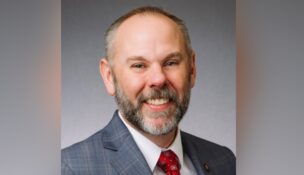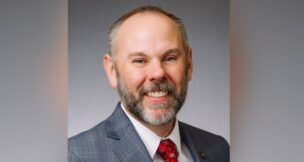Cryptocurrency founder has global ambitions
Melinda Waldrop //August 15, 2018//
Rob Viglione wants to change the world through cryptocurrency.
While Viglione, founder of privacy-centric cryptocurrency ZenCash and a PhD candidate in finance at the University of South Carolina, served as a military scientist working with combat support intelligence in Afghanistan, he saw firsthand how tumultuous societies led to unstable currency. With an interest in Bitcoin and a background in physics, mathematics and economics, he decided to try to help.
“In the U.S., our money’s pretty good. The U.S. dollar is pretty strong. The Euro is pretty strong,” Viglione said. “But it’s really in places like Afghanistan, Venezuela, places in the world where people just can’t rely on their politicians to create a stable economy, (that) are the biggest use cases.”
A decentralized digital currency, Bitcoin operates without a central bank or single administrator. That insulates it from upheaval such as that facing Venezuela, where years of unrest have led to hyperinflation projected to reach 1 million percent in 2018. The country’s president, Nicola Maduro, announced drastic action in late July in response: slashing five zeros from the country’s currency, the bolivar.
The highest domination of the currency available is 100,000. Under Maduro’s plan, new bills would range from two to 500, with each unit representing 100,000 bolivars. That means, as explained by financial blog reason.com, that a cup of coffee in Venezuela would cost 1 million bolivars.
“This idea of separating money from state … it’s a pretty cool economics experiment,” said Viglione, a self-proclaimed libertarian who also looked askance at the U.S. bank bailouts after the 2008 recession. “That was very clear motivation for (getting) politics out of money. So I was very excited when I heard about Bitcoin in 2010.”
The interest piqued then didn’t crystallize until 2013, when Viglione began teaching Bitcoin seminars in Afghanistan. After his return to the U.S. and with a sizable amount of work toward his PhD accomplished, Viglione started exploring industry entrepreneurial opportunities.
He joined a startup German company that aimed to bring cryptocurrency to merchants but said that company was both ahead of its time and poorly organized. Viglione then joined forces with Rolf Versluis, a former nuclear engineer in the Navy. The two launched ZenCash a little more than a year ago.
Viglione’s vision for the company is evolving. Rather than focusing its privacy technology on cloaking financial transactions, he hopes to pivot into establishing a consumer product ecosystem that allows users to profit from their own financial data.
“The big social media companies give you this tech, this network, but they own all of your data and they monetize it,” Viglione said. “We’re trying to flip that around, where we essentially give society the tech for free and you own the data itself, and then you can monetize it. I want to create this in such a super-simple user-friendly way where you don’t even have to realize what’s going on in the back end. You don’t even have to know what a blockchain is. You just have a whole suite of apps that you love and you click a button that says ‘monetize it.’
“Ultimately, I would love to have every person who joins our ecosystem make a few hundred or a few thousand dollars a month just by monetizing their data through this micropayments marketplace. That’s really where we’re going as a project.”
The road to that goal hasn’t always been smooth. ZenCash had to overcome an insider attack, two crashes in the value of cryptocurrency and a 51 percent attack in June. In such an attack, a hacker reorganizes the blockchain and forces it to accept fraudulent blocks, then deposits coins at a cryptocurrency exchange while signing a transaction that sends the same coins into a different wallet.
“We went through a really challenging budget-cut exercise where we dropped about 35% of our labor costs,” Viglione said. “Myself and some of the other partners and directors, we just don’t get paid. Before we fire anyone, we first fire ourselves and just keep on working. It’s been challenging. We still have about 50 people, 20 full-time.”
The company also has global partners, such as Hong Kong-based research company IOHK and Ukrainian technology company Infopulse, as well as an in-house marketing team.
“Our culture is the most important thing that we have. That’s our biggest asset, so we can’t compromise that,” Viglione said. “We wanted to be like Google marries Zappos, the shoe company. They’re known for radical customer support. We were actually the first cryptocurrency to set up a dedicated, 24/7 customer support desk. It’s something we take very seriously.”
Viglione believes cryptocurrency is on the rise after a seven-month bear market as institutions pool capital to enter an industry he sees expanding into areas such as machine-to-machine payments.
“When the solar panel on your home is selling 5 cents of electricity to your neighbor, it’s not going to be through a bank wire. It will be through a micropayment on a crypto network,” Viglione said. “When your car talks to the parking meter, when all these machines are just automatically sending micropayments constantly to each other, it’s not going to be a bank wire. This is where crypto really has the big advantage and will be prolific.”
That future is already being realized by students in Viglione’s Bitcoin and blockchain courses at USC, and by younger generations.
“The kids who are 12 and 13 years old right now – they’re going to grow up, and banking to them is just going to seem like, ‘Why?’ ” Viglione said. “One of my good friends was one of the first cryptographers to really help build Bitcoin. His son is 12 years old, and his son and all of his friends, they only deal in crypto. He gave him some money through a bank account, and his son was like, ‘This is crazy. You let the bank hold your money? This makes no sense. And then you have to ask them to do something with it?’ Where crypto is going to dominate is definitely for that younger generation, because it just makes more sense, and it’s integrated into our technology.”
Right now, however, Viglione acknowledges the technology is too “clunky” to encourage mass participation.
“The hard part is this hurdle of how you get from your bank account into Bitcoin,” Viglione said. “There are exchange services that are out there. We’re getting better at it. Give us a couple of years, and the tech is going to mature at an accelerated, exponential rate, because you have all these amazing, talented people from all over the world contributing in different ways.
“We’re not just a bunch of kids that can code. The adults have come to the table, and we’re actually building real enterprises and real products. It’s only a matter of time before they’re all over the place.”
That eventuality would move Viglione a step closer to realizing what he calls “my big libertarian dream,” with blockchain applications extending beyond currency into societal vehicles such as voting systems that can produce provably fair elections.
“We’re creating a borderless world, in a way, where anyone can participate peacefully,” he said. “We’re trying to create startup societies. … It’s not about no governance. It’s about let’s treat governance like a service and treat citizens like customers and figure out what they want and how we best serve them in a dynamic, flexible way that’s independent from politics.
“That’s where my goals, personally, with this type of technology are, and not just in America. That’s where it’s almost hard to imagine this having much value. But go to Venezuela. Bringing like a lifeline to people in these environments is huge. I say it’s saving the world one block at a time.”
This story first appeared in the Aug. 13 print edition of the Columbia Regional Business Report.
e















